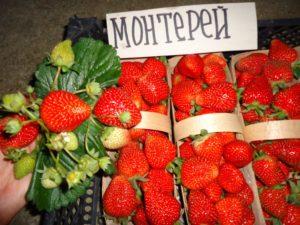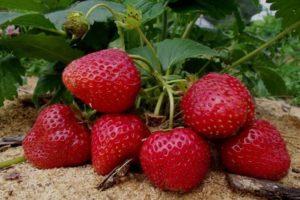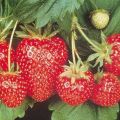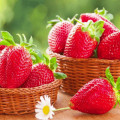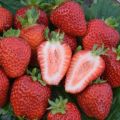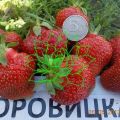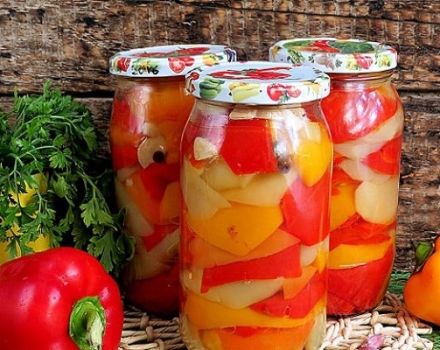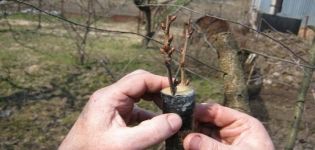Description and characteristics of the strawberry variety Shelf, cultivation and reproduction
The Polka strawberry variety is the result of Dutch selection; it first acquired the main distribution in Poland. The plant quickly recognized the European market thanks to its amazing taste and yield. Despite such a long cultivation period, the popularity of the variety has not diminished.
More about Strawberry Shelf
Each variety has characteristics characteristic of it. Gardeners are guided by them when choosing a particular type.
Features:
The main feature of the Polka (Polka) variety is unpretentiousness and excellent productivity. The plant takes root well in most regions.
Characteristics of the bushes
The bushes have the following distinctive features:
- do not differ in height (reach 12-15 cm) and branching;
- powerful structure;
- prone to overgrowth;
- stalks are thick, with edges;
- the leaf plate is medium-sized, with a serrated edge, green in color with a dark shade, with a wrinkled structure;
- forms many tall, strong peduncles.
Description of berries
During the ripening period, the fruits have a scarlet color. When fully ripe, the berry takes on a dark red shade with gloss. The weight of the berries ranges from 45 to 65 g. The pulp is pink.

Taste is the main advantage of this variety. The fruits are juicy, with a caramel flavor. They lend themselves well to processing, drying, freezing. The berries do not lose their aroma during processing.
Yield
The variety does not have a high yield. It is 1.4 kg per bush. The plant bears fruit well in open beds and in a greenhouse.
Perfection
The plant forms a mustache very quickly. To avoid depletion of the bushes, they must be removed on time. With proper care, they produce a stable harvest.
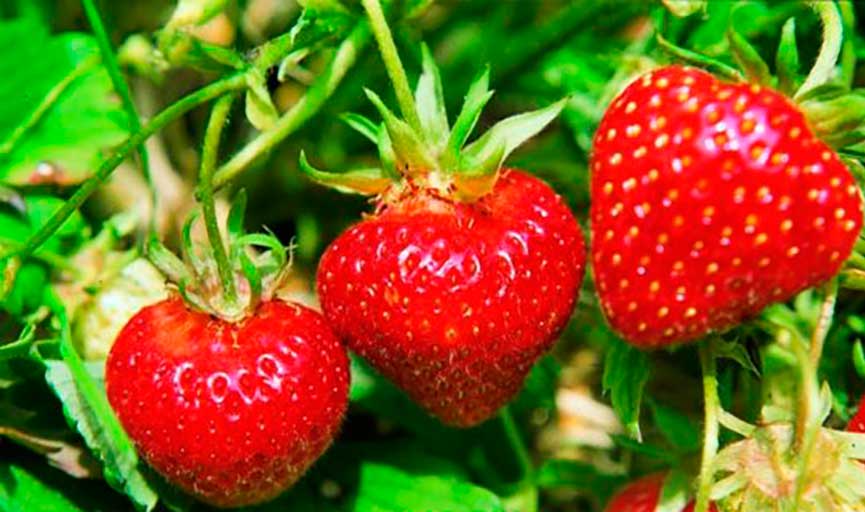
Advantages of the variety
In the process of cultivation, the following advantages of this variety were revealed:
- in sunny weather, the yield is maximum;
- the berries are dense, which ensures good transportability;
- taste characteristics;
- indicators of appearance;
- resistance to temperature drop, in middle latitudes does not require shelter for a cold period;
- unpretentiousness, resistance to powdery mildew and gray rot;
- does not affect garden mites;
- tolerates hot weather and arid conditions.

disadvantages
When choosing a variety for cultivation, it is necessary to take into account not only the advantages of the variety, but also the disadvantages:
- the amount of the crop decreases in the 3rd year of cultivation;
- requires constant updating of landings;
- in a dry season, taste indicators deteriorate;
- bushes quickly overgrow.
The nuances of strawberry care
To get the desired result, it is recommended to follow the tips for strawberry care. Bushes give a small number of tendrils, which makes it easier to care for the plant.

Watering
Strawberries need abundant watering, but not waterlogged. Irrigation is carried out when the topsoil dries out, about twice a week. Drip irrigation is recognized as optimal. Water flows to the root, waterlogging or drying out of the soil does not occur. Watering is carried out from April to autumn. After watering, it is halved.
Top dressing
During flowering, it is recommended to use the complex preparation "Ryazanochka". The tool provides protection against fungal attacks, increases the amount of yield, improves taste characteristics. It is recommended to use organic feeding in the form of mullein, bird droppings.

The first feeding is carried out in the spring. For the period of fruiting, the plant needs potash fertilizers, chicken droppings, ash.
Mulching
This is a way to reliably protect fruits from diseases, harmful insects, weeds, and dirt. First, the plant is mulched in spring, when ovaries appear, then the peduncles will not contact the ground. After harvesting, remove the mulch, and towards the end of autumn, spread it again to protect it from freezing. In the spring, at the beginning of growth, the mulch is removed.
You can use the following materials:
- leaves;
- straw;
- dry grass;
- needles;
- agrofiber;
- paper;
- sawdust;
- bark of trees.

But not all of them are suitable for winter. In winter, it is better to use pine needles, dried grass, straw. The mulch is not laid out on the plant, but around it.
Weeding and loosening
Loosening the soil increases yields. Polka, like other strawberry varieties, needs light soil. After watering, loosening should be carried out to soften the crust. It is important to remove weeds as they become the culprit in the spread of disease.
Preparing strawberries for winter
After collecting the fruits, clean the bushes of damaged and diseased leaves. Then it is important to carry out treatment against parasites and diseases, to enrich the soil with organic fertilizers.

It is recommended to cover young plantings for the winter with material or straw to avoid freezing. The yield depends on how the plant will endure the winter. The natural defense is the mass of leaves that have grown over the summer. Ideally, when a lot of snow falls, it serves as a heat insulator. The soil does not freeze. In winters with little snow, strawberries need shelter. Spruce branches are ideal as a covering material. They keep warm well, the plant does not rot.
The nuances of planting strawberries
To obtain the desired result, it is important to pay great attention to the landing, which is carried out in accordance with certain requirements.
Seat selection
An area with good lighting, a slight slope, 2-3 degrees is selected. Preference is given to the beds located in the southwest; it is better to avoid the northeast side.
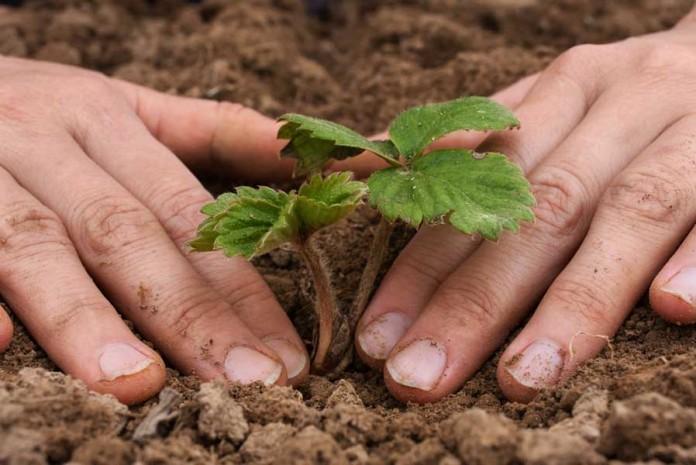
Planting material
Strawberries multiply:
- seed: rosettes are grown from seed;
- mustache: rosettes from the mother bush;
- dividing the bush.
Each gardener chooses the most convenient and optimal planting material.
Landing dates
It is necessary to plant a plant from August to September. The optimum distance between the bushes is not less than 0.4 m. In autumn, the seedlings root better. It is important to pay attention to watering, because at this time it is very hot, young bushes can dry out.If strawberries are planted in spring, fruiting occurs in the next year.
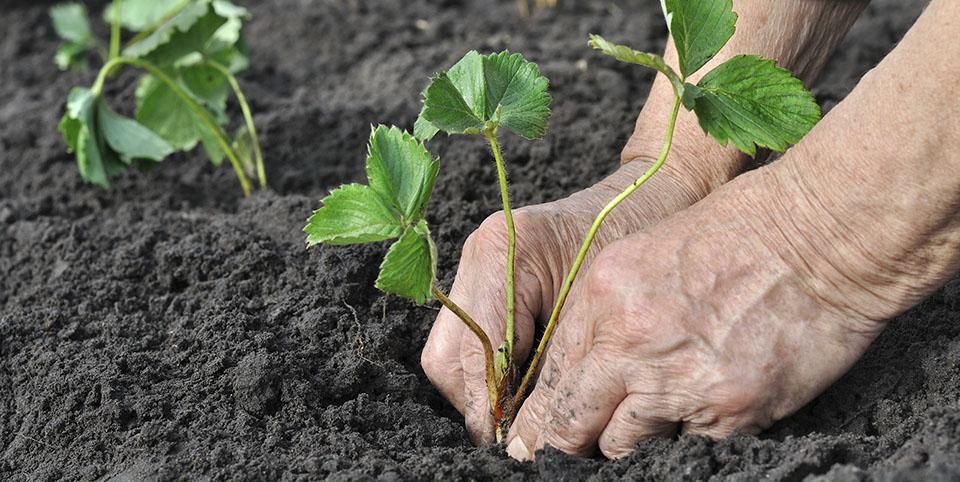
Soil preparation
Soil preparation includes: digging, removing weeds, fertilizing with mineral and organic means. The soil should be slightly acidic. When digging up soil, it is necessary to add for each m2 6-7 kg of manure and 50 g of mineral preparations. Preparation is carried out two weeks before disembarkation.
Strawberries are prone to fungal root damage. To prevent contamination in stagnant waters, it must be planted in sandy loam soil.
Which landing pattern to choose
Depending on the availability of space and preference, the following landing patterns are selected:
- Horizontal in one or two lines. In the first option, the distance between the rows should be at least 0.75 m, between the bushes - 0.2 m. Two lines: the row spacing is 0.3-0.35 m, the bushes at a distance of 0.25 m.
- Vertical. Ideal for small areas. The ridges are located on special structures, which, like pyramids, line up in several rows. Planks, beams are suitable for the construction. The height of the floor is 0.2 m. The method is especially convenient when growing in a greenhouse.
- On agrofibre. First you need to lay narrow paths from the boards. Distance between bushes and rows as for horizontal planting. Use a sharp knife to make cross-shaped holes in agrofibre, wrap the corners inward. Plant seedlings.
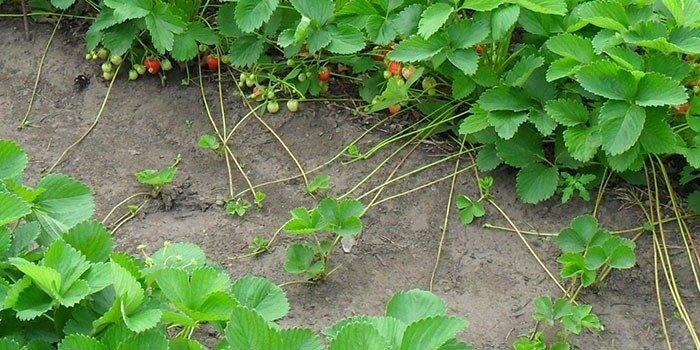
Step by step description of landing
After marking the beds, planting occurs according to the following scheme:
- make holes at a distance of 25 cm;
- pour a liter of water;
- shorten the roots of the seedlings a little, this will stimulate the growth of lateral roots;
- lay out seedlings;
- sprinkle with earth;
- pour water over.
Strawberry propagation
Every gardener chooses a convenient and suitable breeding method. Each of them has its own characteristics.

Seed propagation
Hybrid species do not lend themselves to this method. Only high-quality strawberries can be grown from seed. The advantages of this method:
- the result is healthy bushes;
- increased productivity;
- the berries are large, with excellent taste.
To obtain seeds from a good, healthy berry, cut off the skin with seeds and dry. Before planting, soak for a day and sow in a prepared container, cover with a lid, send in the cold for two weeks. Then place in warmth. The transplant is performed after the formation of two full-fledged leaves.
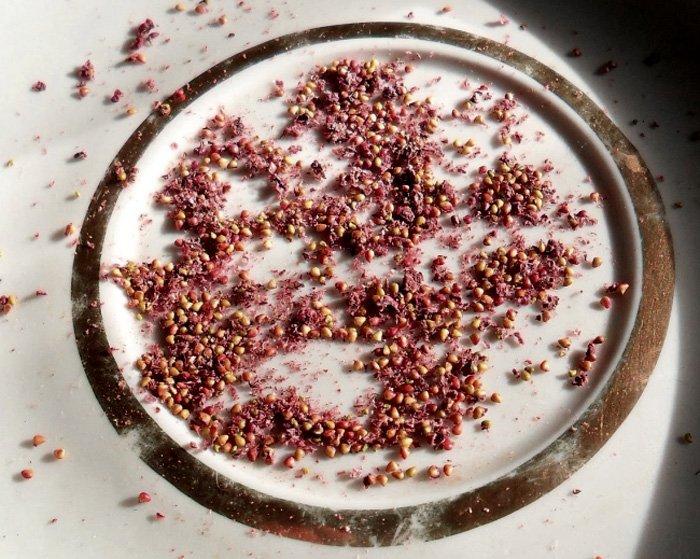
Planting strawberries with a mustache
Mother plants are chosen over 2 years of age, healthy, not affected by pests, yielding consistent yields.
Scheme of actions:
- The first socket is used for planting.
- It must be attached to the ground without separating it from the main bush.
- In August, cut off the tendril from the mother plant, remove the socket with a clod of earth.
- Land on a prepared ridge. By winter, the bush will grow the required amount of leaves for protection in the cold season.

Other ways
For breeding, the method of dividing an adult plant is used. But there is a risk that the outlet will not take root on a new ridge. The habituation period is quite long. Often, such a bush begins to bear fruit only in the following season.
It is necessary:
- Held in the spring or after harvesting berries.
- Take a plant at least 3 years old. With a shorter age period, the plants will not take root.
- For planting, it is recommended to use a substrate: soil mixed with humus and sand, in parts 2: 2: 1.
- Dig out the bush, remove dried and damaged leaves.
- To facilitate separation, place the bush in water.
- Divide the bush into parts, each must have a whole socket.
- Cut the lower root part and place in a manganese solution for the purpose of disinfection.
- Plant, cover with foil to accelerate rooting.
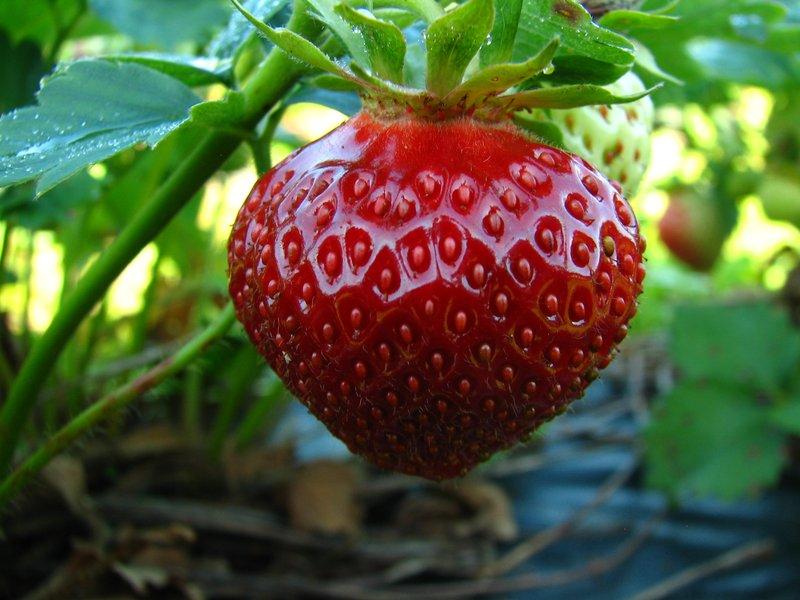
Plant diseases and pests
Despite the plant's immunity to a number of diseases, in particular, to gray rot and powdery mildew, it has no immunity to verticillosis. The defeat is caused by a parasite. The root system suffers. These microorganisms suck out the juice of the plant, after which they poison the strawberries with metabolic products. The defeat eventually passes to peduncles. If the bush is hit hard enough, it cannot be saved.
Collection and storage
Strawberries are considered a versatile table variety. It tastes good, so it is a success. Possesses good transportability, since the berries are dense, do not let juice. If strawberries are to be transported, they must be harvested immature, with whitish tips. Place the container with berries in the cold, the optimal storage temperature is not higher than +5 aboutFROM.
